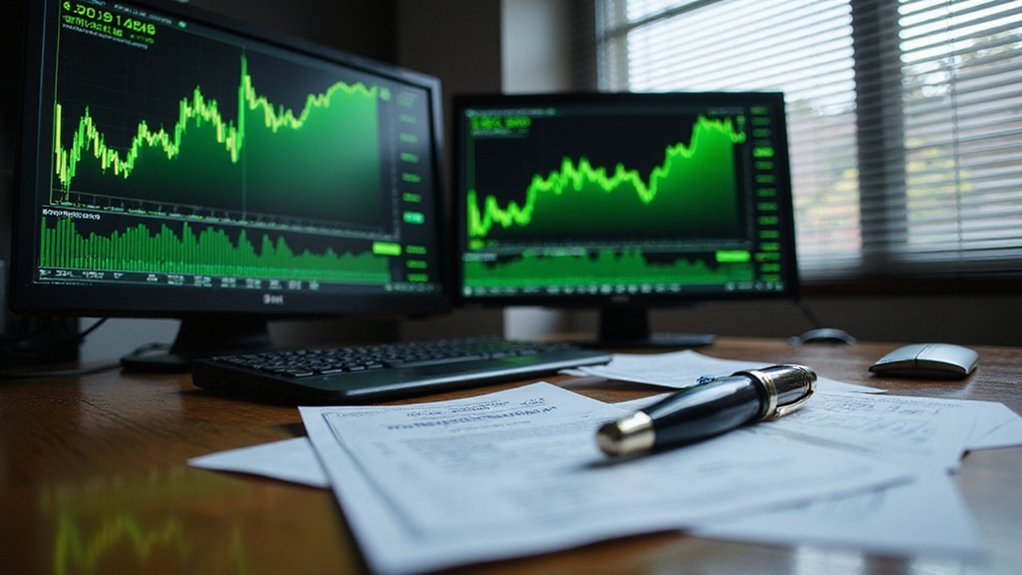While bitcoin soared to a record-breaking $118,080 and cryptocurrency markets celebrated what appeared to be an unstoppable rally, Ark Invest chose precisely that moment to dump $6.5 million worth of Coinbase shares and $5.8 million in Robinhood stock—a move that epitomizes either masterful contrarian timing or the kind of portfolio management that makes observers wonder if Cathie Wood’s fund operates on some entirely different gravitational plane than the rest of Wall Street.
The timing borders on theatrical. As Coinbase shares climbed 4% to close at $388.96 and Robinhood jumped 4.4% to $98.70, Ark methodically offloaded 16,627 Coinbase shares and 58,504 Robinhood shares. Ethereum’s concurrent 8.5% surge to $3,011 only amplified the apparent contradiction of selling during what most would consider prime market conditions.
Yet this wasn’t mere contrarian posturing. Ark simultaneously acquired $8.8 million in Tempus AI shares and deployed $16 million into robotics investments, suggesting a calculated reallocation rather than crypto capitulation. The fund also jettisoned approximately $1.7 million worth of Block Inc. shares, completing what appears to be an all-encompassing rotation away from crypto-adjacent fintech positions.
The strategic logic becomes clearer when considering the regulatory headwinds facing these companies. Robinhood faces mounting US regulatory scrutiny while pursuing blockchain stock tokens in Europe—a regulatory arbitrage play that could prove either brilliant or catastrophic. Coinbase, despite its market dominance, remains perpetually exposed to both crypto volatility and evolving compliance requirements that could reshape its business model overnight. The exchange’s recent partnership with Perplexity AI for real-time crypto data service represents its ongoing efforts to integrate blockchain and AI technologies while navigating an increasingly complex regulatory landscape.
Ark’s decision to realize gains during peak momentum reflects a discipline that distinguishes institutional portfolio management from retail enthusiasm. While crypto evangelists proclaimed the dawn of a new financial era, Ark quietly banked profits and diversified into artificial intelligence and robotics—sectors offering potentially superior risk-adjusted returns without the regulatory uncertainty plaguing crypto infrastructure. The fund’s largest trade of the day involved purchasing 179,242 shares of Teradyne stock, valued at $16.63 million, signaling Wood’s increasing commitment to industrial automation and testing sectors. The crypto sector’s market volatility can indeed lead to significant financial losses overnight, making Ark’s timing particularly noteworthy given their exit during what many considered peak market conditions.
The $12.3 million in combined sales represents more than profit-taking; it signals a fund manager prioritizing prudent rebalancing over narrative-driven momentum. Whether this proves prescient or premature remains to be seen, but Ark’s willingness to sell strength while others chase performance demonstrates the kind of portfolio discipline that either generates alpha or spectacular regret.









